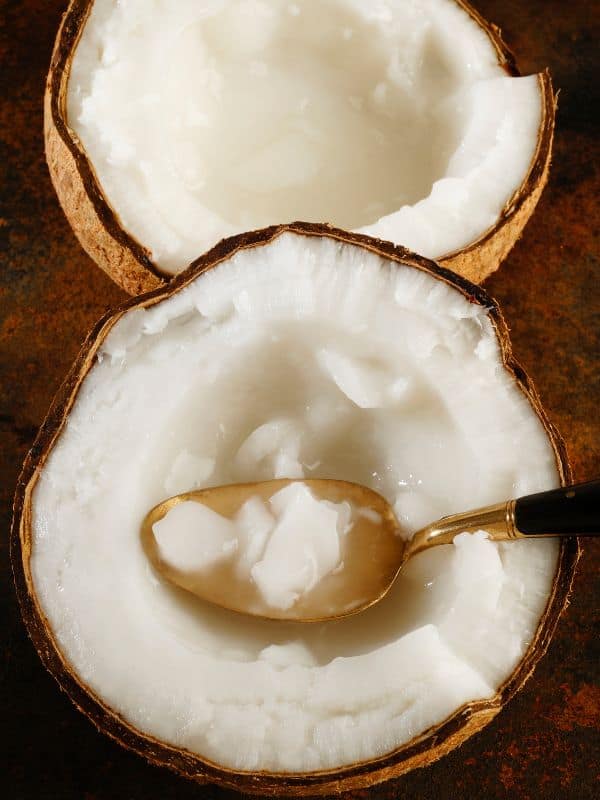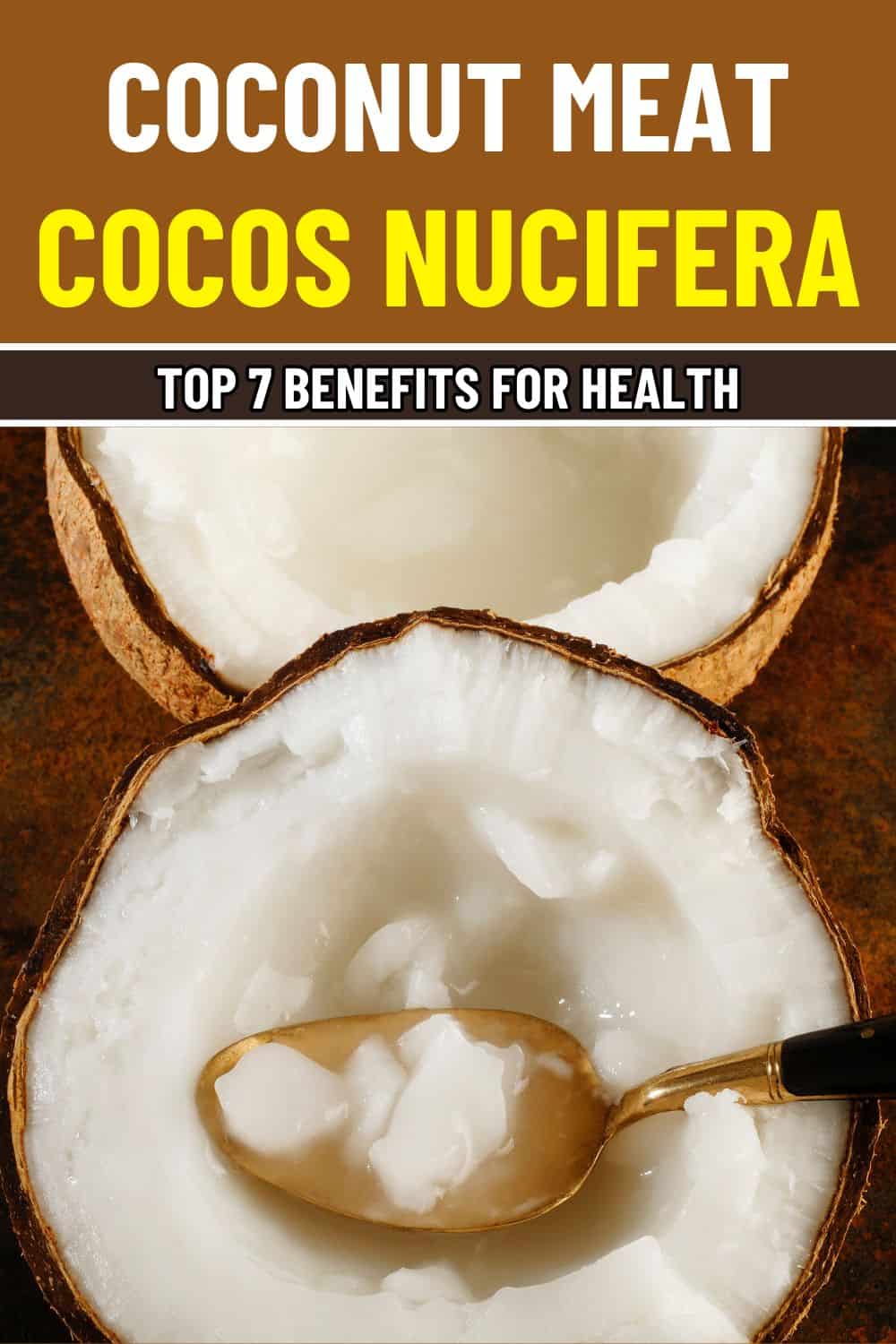Coconut meat, the white, edible flesh inside the coconut, has become a rising star in the wellness world.
With its rich nutrient profile and multiple health benefits, it’s no surprise that more people are adding it to their diets.
Whether you prefer it fresh or dried, coconut meat can be a tasty and nourishing addition to your meals.
#1. Supports Heart Health
Coconut meat is rich in medium-chain triglycerides (MCTs), a healthy fat that may help improve cholesterol levels. Research indicates that MCTs can increase HDL (good) cholesterol while lowering LDL (bad) cholesterol.
Moreover, coconut meat contains copper, with 80 grams providing 44% of your daily recommended intake.
Copper is crucial in forming red blood cells and improving circulation, further supporting overall heart health.

#2. Aids in Weight Loss
Coconut meat’s high MCT content has been linked to improved fat burning and increased feelings of fullness.
A 90-day study published in the European Journal of Clinical Nutrition demonstrated that participants who incorporated 100 grams of fresh coconut into their daily diet experienced significant weight loss compared to those consuming peanuts.
The 7 grams of fiber in an 80-gram serving of coconut meat (over 20% of the recommended daily intake) also helps promote satiety, supporting long-term weight management.

#3. Improves Digestion
Coconut meat is packed with insoluble fiber, which helps bulk up stool and promote regular bowel movements.
The 7 grams of fiber in a typical serving work to keep your digestive system functioning smoothly.
Beyond its fiber content, the MCTs in coconut meat can strengthen the good bacteria in your gut, improving digestion and reducing inflammation.
MCTs are said to have a positive impact on gut health by supporting beneficial microbiota and lowering harmful bacteria.

#4. Boosts Immunity
Coconut meat is an excellent source of manganese, providing 60% of the daily value in just 80 grams. Manganese acts as a powerful antioxidant, protecting your cells from oxidative damage.
Additionally, the MCTs in coconut meat possess antiviral, antifungal, and anti-inflammatory properties.
Studies suggest these fats can enhance immune function, aiding the body in fighting infections.

#5. Promotes Brain Function
The MCTs in coconut meat provide an alternative energy source for the brain, which may benefit cognitive function, especially for those with neurodegenerative diseases such as Alzheimer’s.
Studies published in Neurobiology of Aging suggest that MCTs enhance memory and cognitive performance by producing ketones, a more efficient energy source for the brain.

#6. Helps Stabilize Blood Sugar
Coconut meat has been shown to help stabilize blood sugar levels. Its high fiber content slows sugar absorption, which is beneficial for individuals managing diabetes.
A study in Diabetes Care found that coconut consumption can reduce fasting blood sugar levels and improve insulin sensitivity.
The healthy fats in coconut also play a role in regulating blood sugar by influencing gut bacteria in a way that promotes better blood sugar control.

#7. Supports Hormonal Balance
Coconut meat contains healthy fats and minerals, both of which are essential for maintaining hormonal balance.
The fats in coconut are vital for hormone production and energy regulation. With its high copper content, coconut meat supports thyroid function, which is critical in managing your metabolism.
Including coconut meat in your diet may be a simple yet effective way to help keep your hormones in check.

How to Use Coconut Meat
- Add to smoothies: Blend fresh or dried coconut meat into your favorite smoothies for added texture and nutrients.
- Top yogurt or oatmeal: Shredded coconut adds a delightful crunch and extra fiber to your morning meal.
- Bake with it: Use shredded coconut in baking recipes, like cookies or energy bars, for a tropical twist.
- Use in cooking: Add chunks of fresh coconut meat to stir-fries, curries, or soups for extra flavor and nutrition.
- Make coconut milk: Blend fresh coconut meat with water to make your own coconut milk, which can be used in a variety of dishes.

Cautions and Precautions
The MCTs in coconut are metabolized differently than other types of saturated fat, and they may not have the same negative effects on heart health.
Still, if you have high cholesterol or heart disease, you should monitor your intake and consult a healthcare provider.
Due to its high-fat content, coconut meat is also calorie-dense. Overeating could lead to weight gain if not accounted for within your overall calorie intake.
Although rare, some individuals may be allergic to coconut. If you’re unsure, it’s a good idea to test a small amount first or consult with an allergist.
Disclaimer
This article is for informational purposes only and should not be considered a substitute for professional medical advice.
Always consult with a healthcare provider before making significant changes to your diet, especially if you have underlying health conditions.







